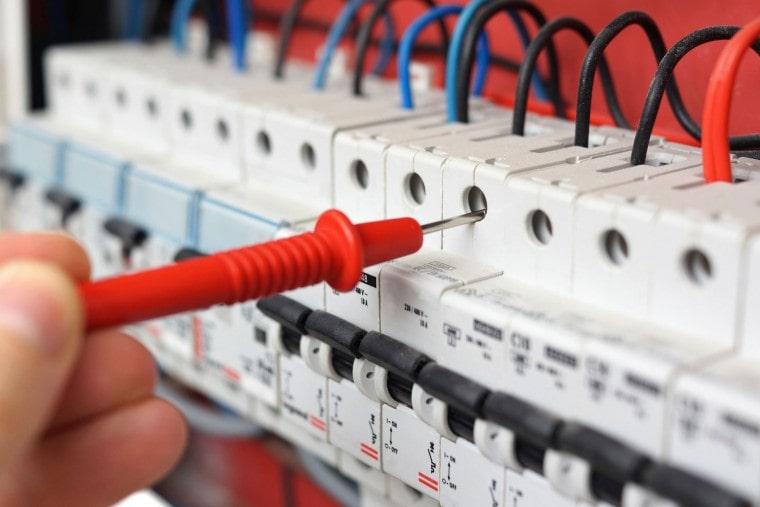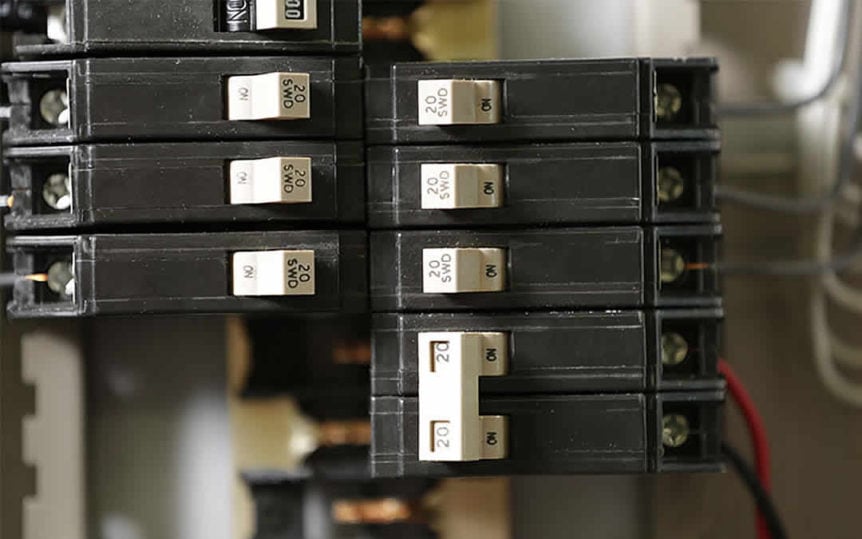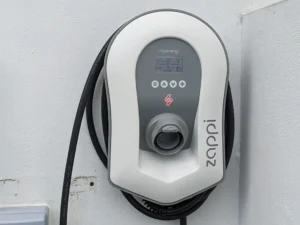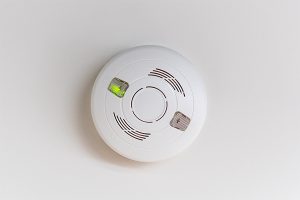Circuit breakers are designed to protect you against electrical hazards such as electrocution or fire and will shut down the power supply and trip when they detect faults which can cause these risks.
There are a few circuit breakers located on the electrical panel of your home which is divided into different sections controlling the different areas of which electricity is supplied to.
When a circuit breaker exceeds its safety restrictions, the breaker will trip and will result in power loss to specific appliances, i.e. microwave or fridge or a certain area in your home which is controlled by the breaker.

Top 5 Reasons Why Your Circuit Breaker Keeps Tripping Include:
-
Overloads
The most familiar reason for a breaker tripping is circuit overloading. This happens when you have too much equipment loaded onto the breaker, and the safety limit of power supply to your appliances is surpassed. You’ll often see this happening when a new appliance is installed of which the electrical system is not able to maintain or when a high-power device is plugged in at an area which is lacking entry to safe amperage.
-
Short-Circuiting
Short-circuiting occurs when an active or “hot” wire comes in contact with other active wires. Visible signs of this happening are usually blackening around the outlet or the smell of burnt wiring. If you suspect short-circuiting, avoid interacting with the outlet, leave the breaker tripped and phone a qualified electrician to come and assist you.
-
Ground Faults
This fault occurs when you’re attempting to ground your wiring. The fault is comparable to short-circuiting but not identical. The variance occurs in the interaction. Short-circuiting is where two “hot wires” come in contact with each other whereas a ground fault happens when a hot wire meets with the ground wire causing the safe “grounding” of the outlet to become invalid and hazardous. The same action is required for this fault – call an electrician immediately.
-
Appliance Malfunction
A faulty appliance which is damaged, defective or malfunctioning generally draws more power than its supposed to and can initiate overloading. When your breaker trips, it is advisable to check all appliances that relate to that breaker to see if the trip was due to a faulty appliance. The device will feel hotter than usual.

-
Storms
Lighting storms can also contribute to a tripped breaker if lightning struck a nearby electrical cable near your residence it create big problem So you should contact your residential electrician. Either all of the breakers will trip at once, or only one or two may be affected. The problem is usually sorted by the time the storm blows over, but if you’re unable to restore your power, then you need to phone a qualified Electrician to attend to the fault.
Conclusion:
Whenever you’re experiencing problems with circuit breaker, it is always advisable to seek the assistance of a qualified Electrical company which provides you all kind of residential and commercial electrical services and more. The information in this article is only a guideline as to what the possible cause may be and should not be viewed as encouragement to fix and electrical faults yourself.
Contact us today on (08) 9220 5201








